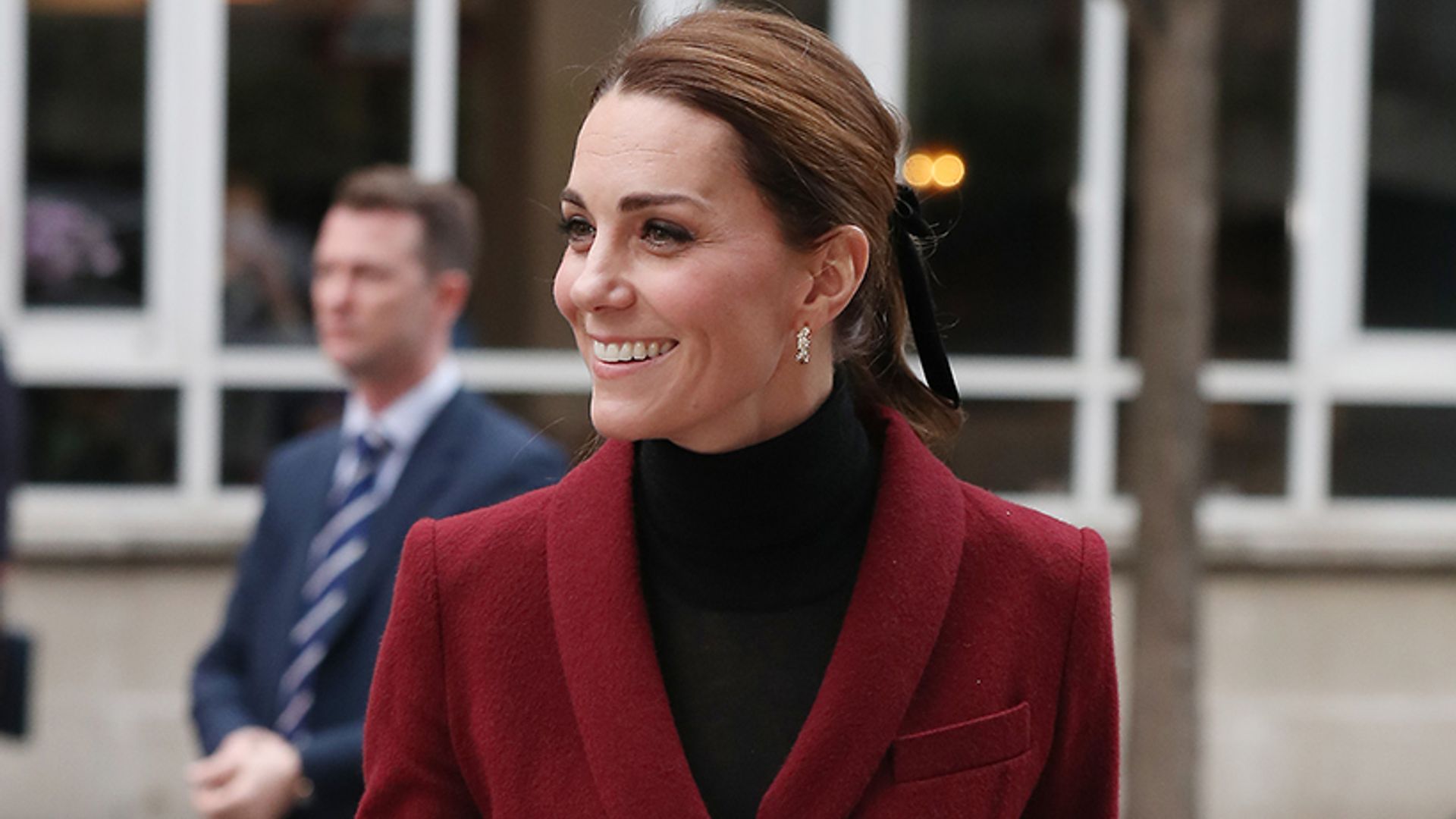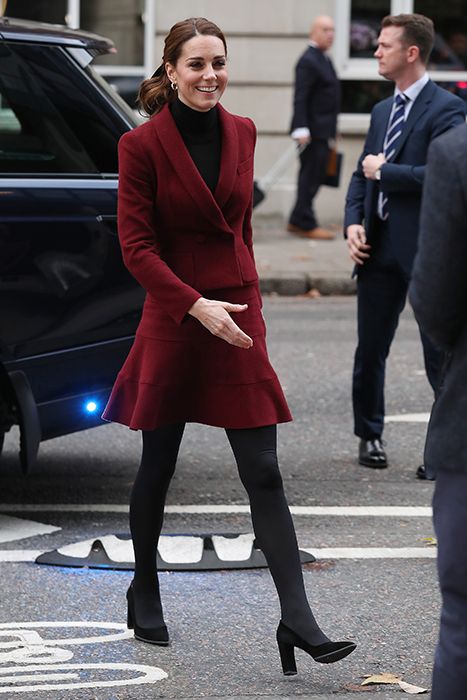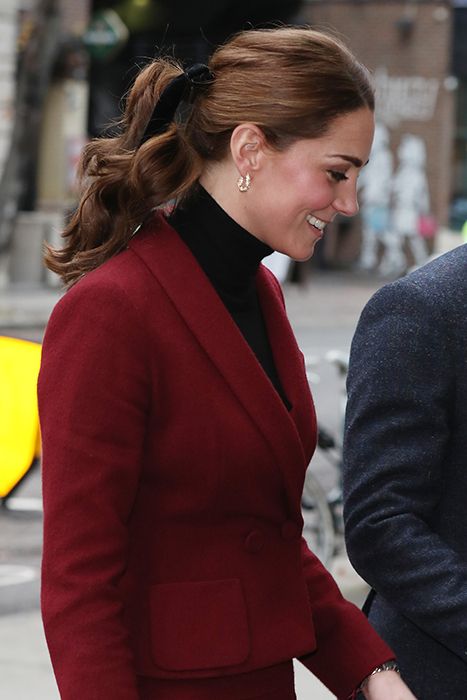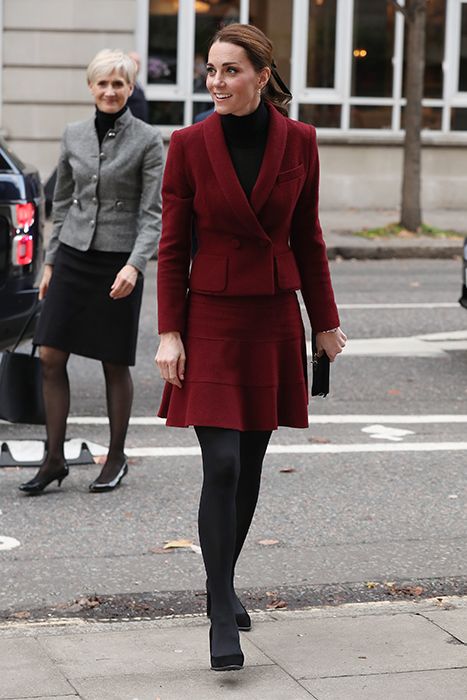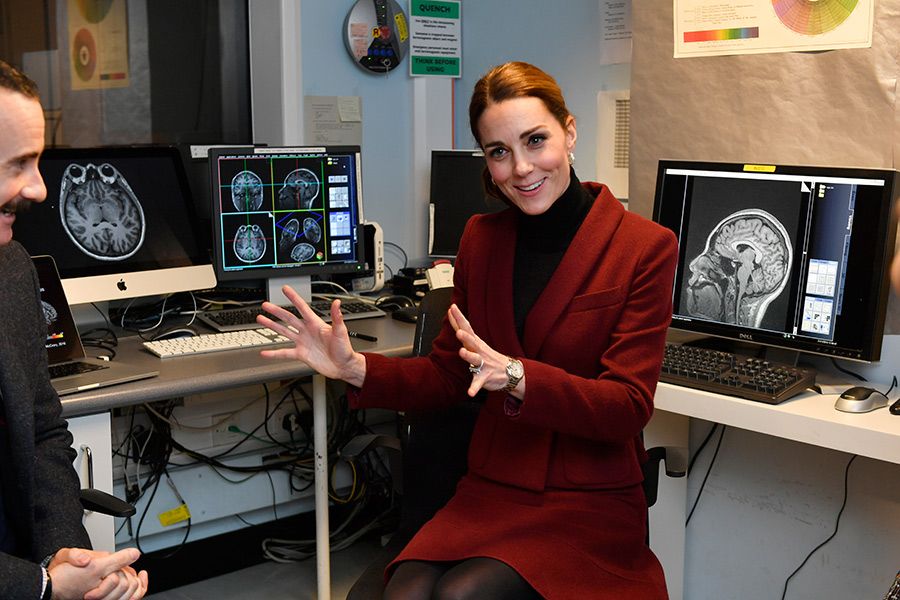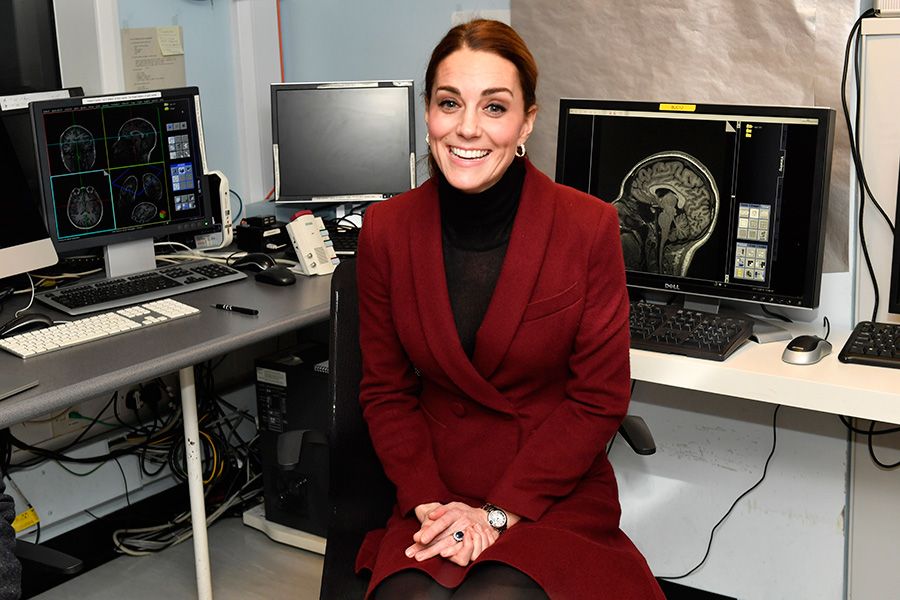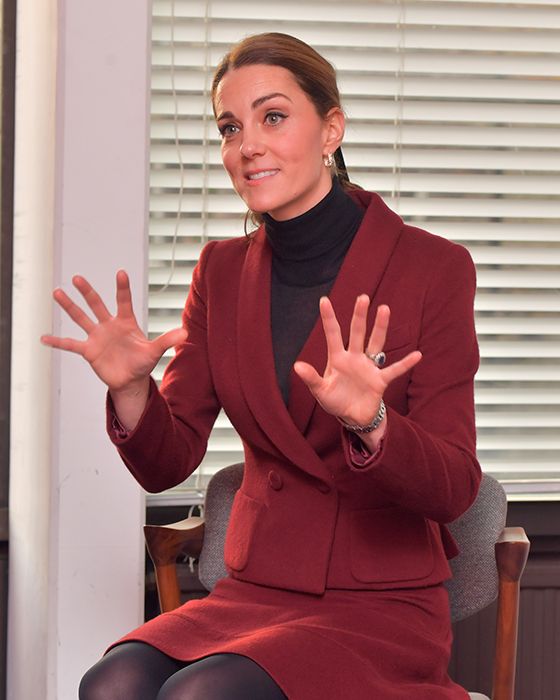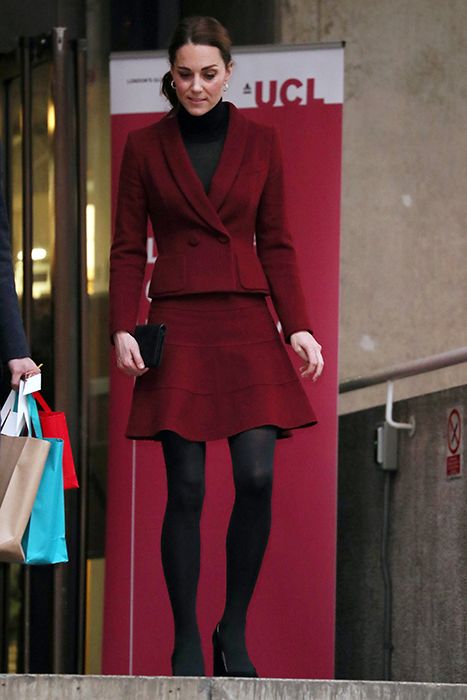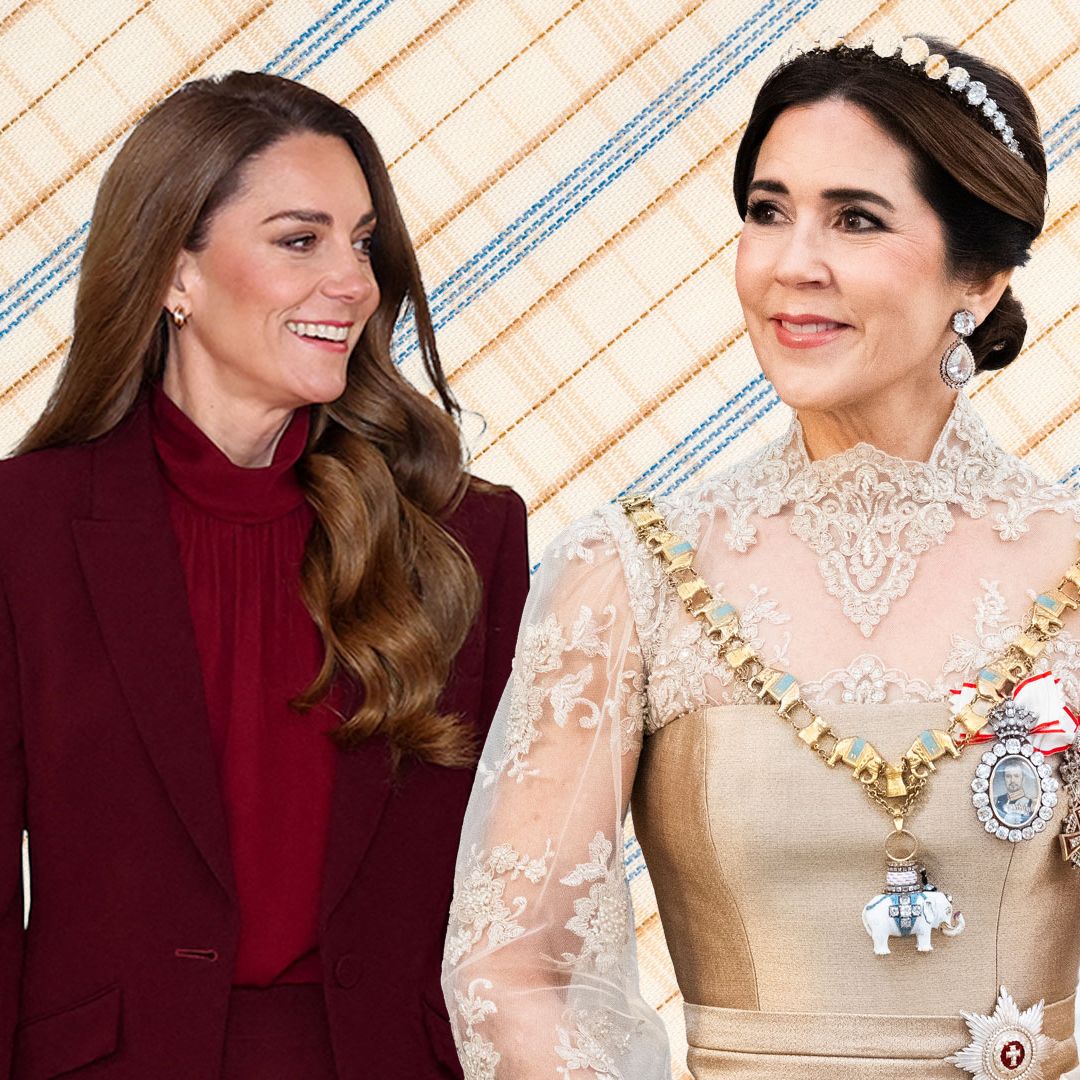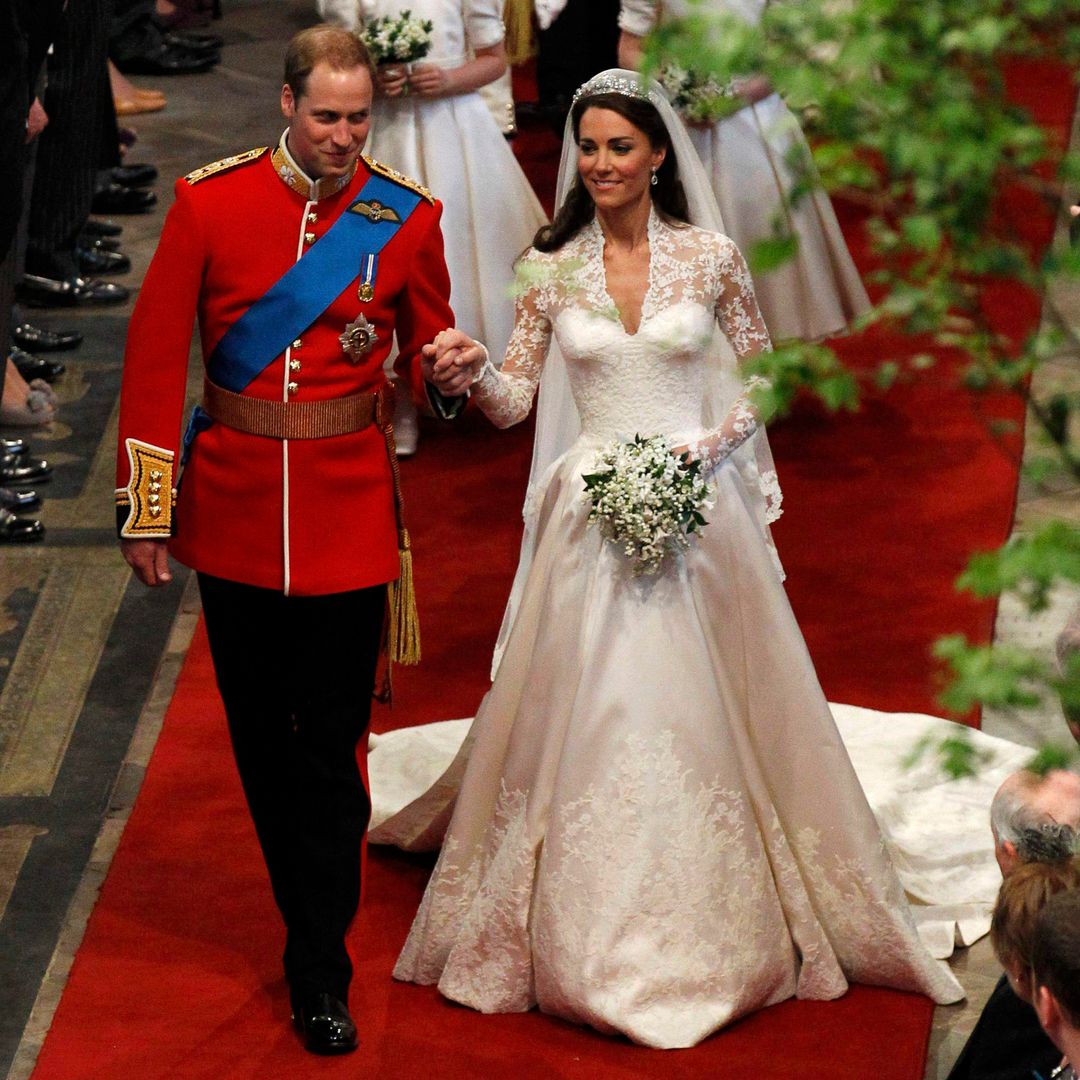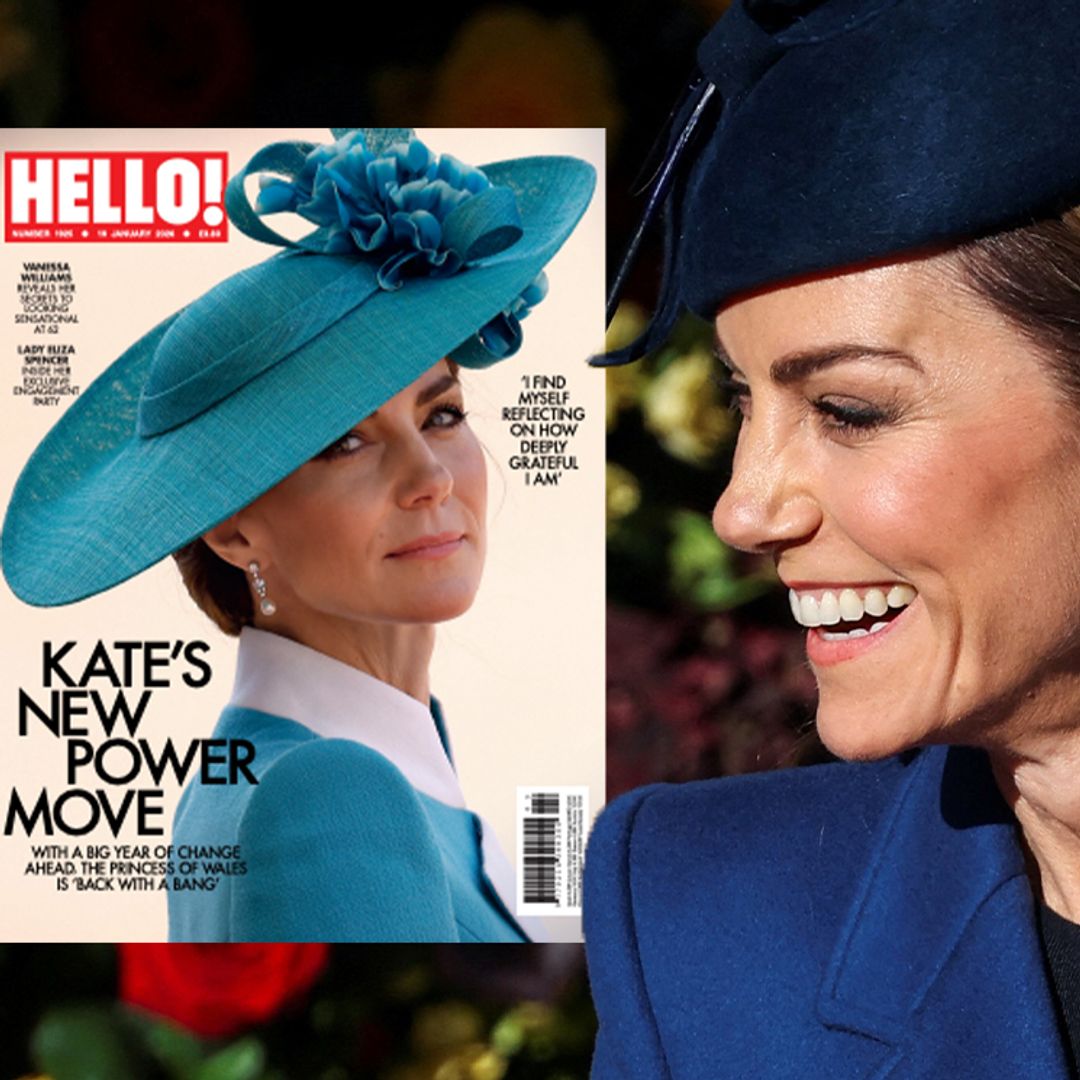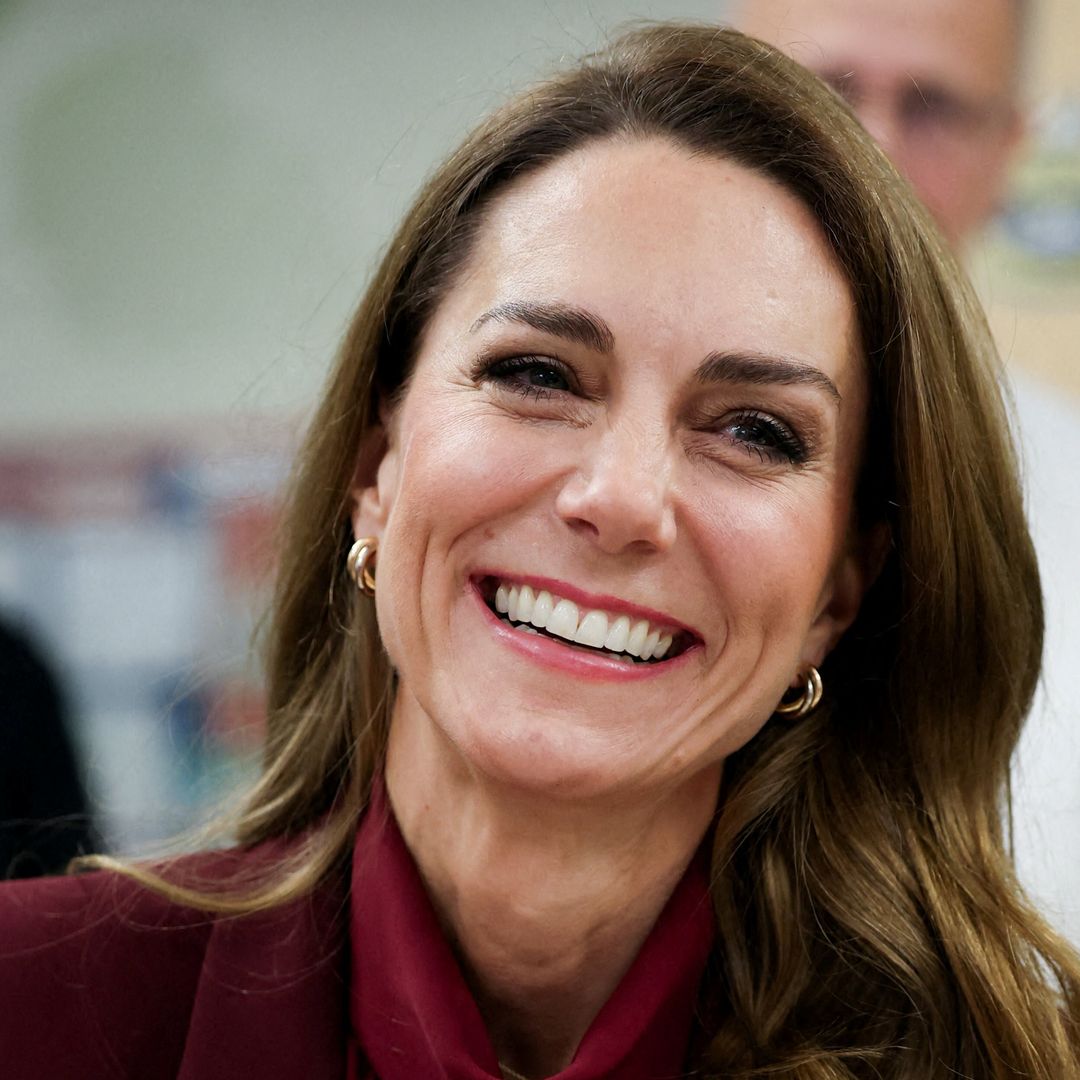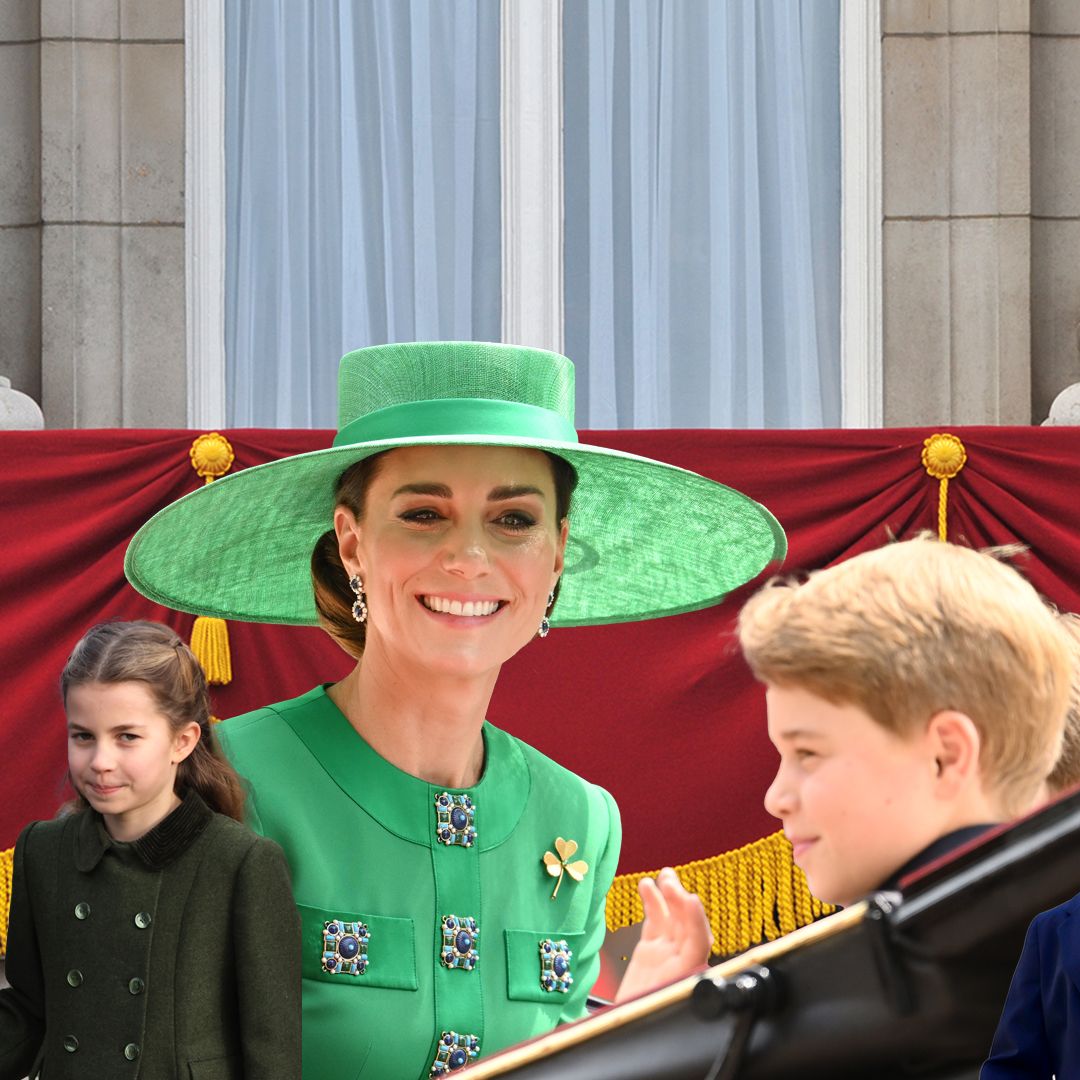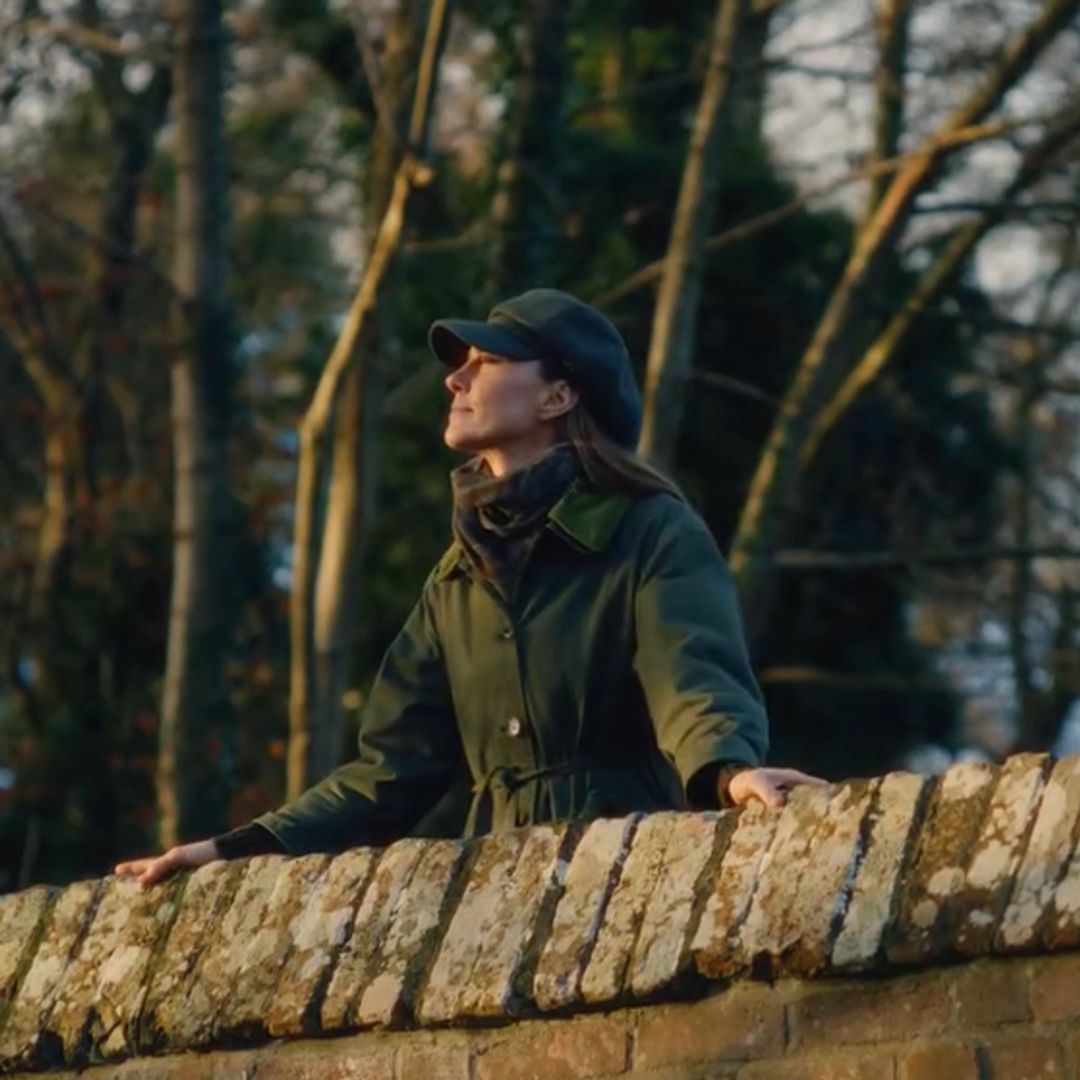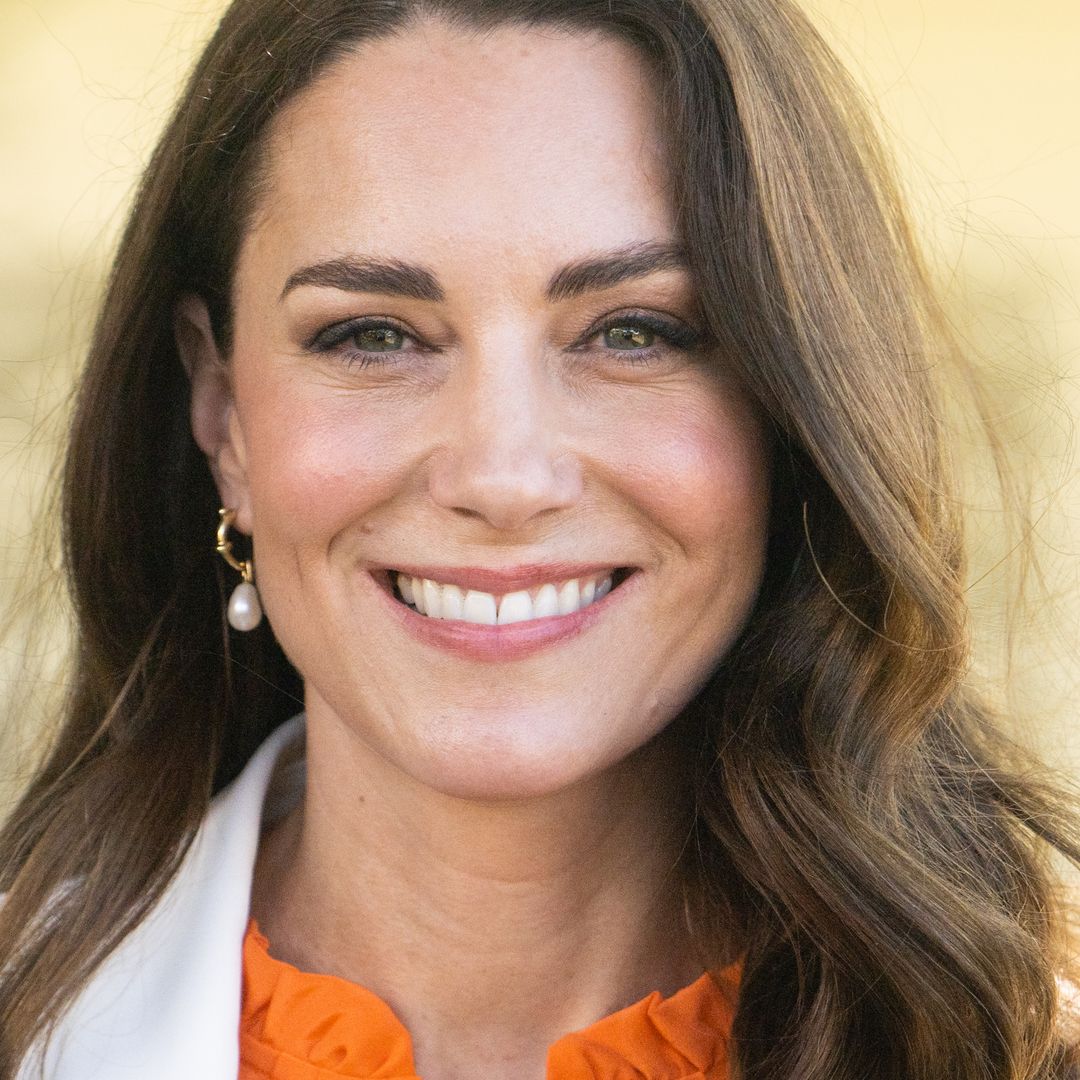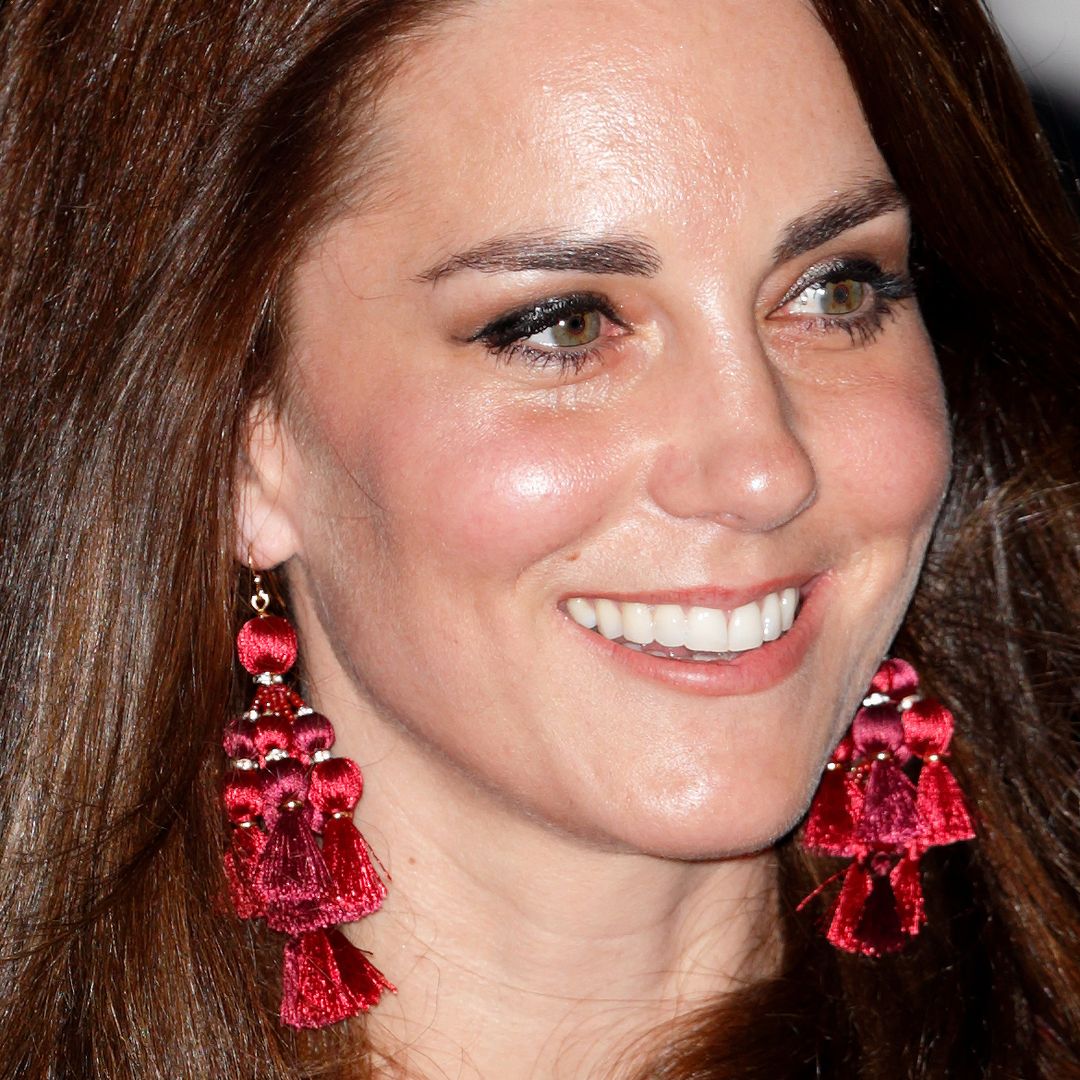The Duchess of Cambridge surprised students and staff at UCL on Wednesday afternoon, when she dropped in for a chat with Professor Eamon McCrory. Professor McCrory is the Co-Director of the Developmental Risk and Resilience Unit in the Psychology & Language Sciences Division, and Kate was meeting with him to learn about how children develop emotionally and socially.
Mother-of-three Kate, who is passionate about helping children from a very young age, beat the November chill in her recycled Paule Ka suit. She looked typically graceful, wearing her brunette hair up. During the visit, the Duchess was shown the Unit's MRI Scanning Facility. She was shown how the scanner is used to study the brain, and saw the resulting images that allow scientists to see differences in brain structure and function.
Click to see more photos of Kate in London…
The Duchess scooped her hair into a high ponytail, accessorising with a black velvet ribbon.
The Duchess made an entrance to UCL, accompanied by her private secretary Catherine Quinn. Here's a closer look at Kate's elegant work outfit, which she last wore in February 2017 during a visit to Wales. The suit is made of a fitted blazer and a short, flared skirt that falls above the knee.
During the visit, the royal spoke to members of Professor McCrory's neuroscience research team about how they work closely with children and families to shed new light on resilience following early adversity. Kate has always said she is a strong believer that children who are given help and support from a young age flourish into happier and healthier adults.
She was told about UCL's groundbreaking research on how early experience shapes brain function, and was shown how the scanner is used to study the brain.
Kate also joined a roundtable meeting with researchers and students to learn about the wider ambition for developmental neuroscience.
UCL is conducting world-leading neuroscience research into the critical importance of the early years, and developing new treatments and ways of supporting children and parents. The neuroscience Unit aims to better understand the factors that contribute to healthy development, as well as those that are linked to the emergence of behavioural and emotional problems in children.
